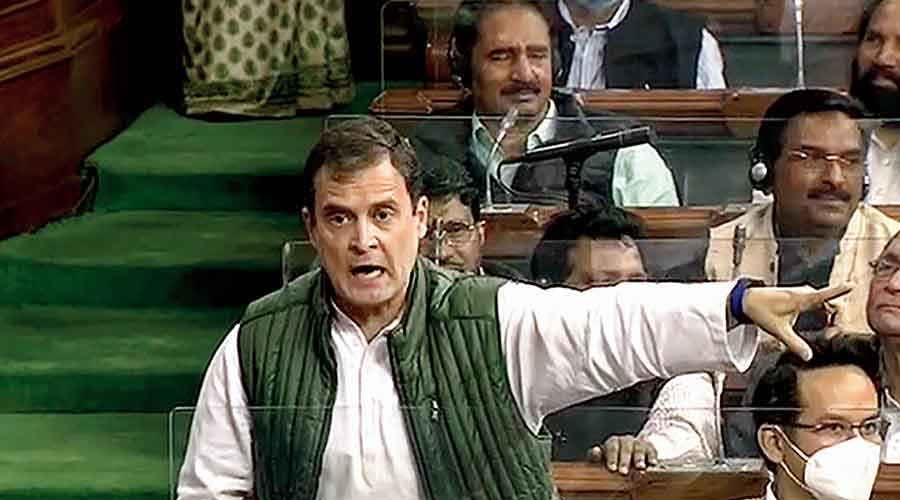A worrying shadow has fallen between the Idea of India and the India of today. This was the gist of the spirited criticism by Rahul Gandhi who alleged, in the course of a debate on the motion of thanks, that there were effectively two Indias under the watch of one leader. The Bharatiya Janata Party may have moved a breach of privilege motion against Mr Gandhi but it will find it hard to deny the existence of a fragmented nation — economically and socially. There is the India of the rich: the wealth of Indian billionaires rose by 39 per cent during the time of Covid. The other — blighted — country belongs to the dispossessed: the United Nations estimated that 4.6 crore Indians had fallen back into the poverty trap in 2020. There is the India of the believers in stick and silence: Narendra Modi’s muscular regime certainly believes in bludgeoning dissenting voices. Then there are those who endorse conversations and engagement: elements that remain central to India’s civilizational ethos. Mr Gandhi’s argument can be taken further to cut a similar, dividing line across India’s social turf to separate the admirers of Mr Modi’s vision of a distinctly majoritarian republic from the resisters fighting to revive the pluralist India of yore.
The outcome of these multiple, simultaneous contests is not clear at the moment. What is evident though is the government’s complicity in this project of upending the familiar markers of an inclusive republic as well as the Opposition’s utter failure to check the slide. Things are unlikely to change as long as Mr Modi’s opponents remain divided over sundry issues: the Trinamul Congress’s feuding with the Congress being a case in point. Even M.K. Stalin’s thoughtful strategy of stitching a united social front is likely to be ill-fated unless the Opposition gets its act together. The absence of an alternative political and ideological template to that of the BJP would mean that there would be many unequal Indias within one.











